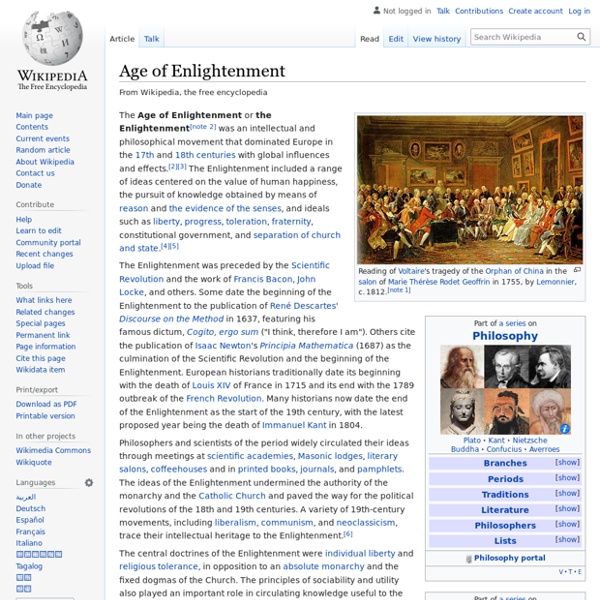Enevold Brandt
Count Enevold Brandt (1738 - 28 April 1772) was a Danish courtier. Notes[edit] References[edit] "Brandt, Enevold, Count". New International Encyclopedia. 1905.
Value pluralism
Value-pluralism is a theory in metaethics, rather than a theory of normative ethics, or a set of values in itself. Oxford philosopher and historian of ideas Isaiah Berlin is credited with being the first to popularize a substantial work describing the theory of objective value-pluralism, bringing it to the attention of academia (cf. the Isaiah Berlin Virtual Library). The related idea that fundamental values can and, in some cases, do conflict with each other is prominent in the thought of Max Weber, captured in his notion of "polytheism". Context[edit]
Bernard Williams
Sir Bernard Arthur Owen Williams, FBA (21 September 1929 – 10 June 2003) was an English moral philosopher. His publications include Problems of the Self (1973), Ethics and the Limits of Philosophy (1985), Shame and Necessity (1993), and Truth and Truthfulness (2002). He was knighted in 1999. As Knightbridge Professor of Philosophy at the University of Cambridge and Deutsch Professor of Philosophy at the University of California, Berkeley, Williams became known for his efforts to reorient the study of moral philosophy to psychology, history, and in particular to the Greeks.[1][2] Described by Colin McGinn as an "analytical philosopher with the soul of a general humanist," he was sceptical about attempts to create a foundation for moral philosophy. Martha Nussbaum wrote that he demanded of philosophy that it "come to terms with, and contain, the difficulty and complexity of human life.
Martha Nussbaum
American philosopher and academic Martha Craven Nussbaum[a] (born 1947) is an American philosopher and the current Ernst Freund Distinguished Service Professor of Law and Ethics at the University of Chicago, where she is jointly appointed in the law school and the philosophy department. She has a particular interest in ancient Greek and Roman philosophy, political philosophy, feminism, and ethics, including animal rights.
Hilary Rubinstein
Hilary Rubinstein (26 April 1926 – 22 May 2012) was a British publisher and literary agent. He was described by Ion Trewin in an obituary published in The Guardian as "one of Britain's premier literary agents". Early and private life[edit]
Mary Midgley
Mary Beatrice Midgley (née Scrutton; born 13 September 1919) is an English moral philosopher. She was a Senior Lecturer in Philosophy at Newcastle University and is known for her work on science, ethics and animal rights. She wrote her first book, Beast And Man (1978), when she was in her fifties. Subsequently she has written over 15 other books, including Animals And Why They Matter (1983), Wickedness (1984), The Ethical Primate (1994), Evolution as a Religion (1985), and Science as Salvation (1992). She has been awarded honorary doctorates by both Durham and Newcastle universities.
World's Brightest Minds Pose After Historic Quantum Mechanics Debate : Solvay Conference, 1927
Einstein, Bohr, Heisenberg, Schrödinger, Curie, Lorentz, Bragg! All these names are associated with one or the other theory, equation or formula in Physics. Have you ever wondered how it would have been when all of the geniuses got together? World’s most intelligent minds attended the conference at International Solvay Institute for Physics, Brussels, Belgium in 1927. Niels Bohr and Albert Einstein along with 27 others met to discuss the quantum theory.
Environmentalist says humans are plague on Earth
David Attenborough, British broadcaster and environmentalist, is at it again, claiming that humans are a plague. According to today’s UK Telegraph: He said the only way to save the planet from famine and species extinction is to limit human population growth.“We are a plague on the Earth.
We're all aliens... how humans began life in outer space - Science - News - The Independent
Charles Darwin solved the mystery of life's wondrous diversity with his theory of natural selection. But even he was flummoxed by the ultimate mystery of mysteries: what led to the origin of life itself? In trying to answer the problem, scientists have turned to the stars, or at least the "builders' rubble" of meteorites and comets left over from the formation of our solar system some five billion years ago.
Human Potential: How To Value Your Own Existence
“The value of life lies not in the length of days, but in the use we make of them… Whether you find satisfaction in life depends not on your tale of years, but on your will.” -Michel De Montaigne The question has been posed before, and will be posed for centuries to come. How are we to value our time spent on this earth? Do we value it in minutes, accomplishments, or the help that we provide others? How do we form our own self-image, our idea of our own value on earth?



